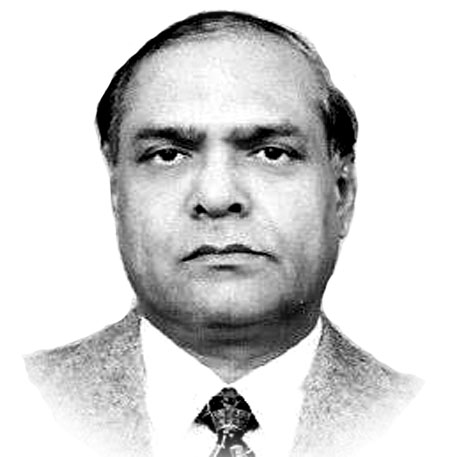Rashid A Mughal
THE role played by the UN in resolving international disputes, conflicts and wars has come under intense discussion and review. Muslim world particularly has lost hope in the UN and has become increasingly critical of it’s domination by superpowers. The conflicts and disputes amongst and within Muslim countries and with other countries have dragged for years and years and in spite of firm resolutions, no effort has been made to either resolve long pending and outstanding disputes nor action has been taken against the aggressors who openly flout the UN Charter. The case of Kashmir and Palestine is a living example. These two unresolved conflicts, which have resulted in numerous wars between the parties in the past, are capable of throwing the entire world into a nuclear arena and may be the cause of third world war, if the UN apathy continues. Over the years, there have been numerous initiatives to reform the UN. These range from summits of heads of state, to panels of experts and to the reform efforts by UN Secretary Generals. Just six months after taking office as Secretary General in January 1997, Kofi Annan announced his plan for United Nations reform. He set out an agenda of better management and coordination across the entire UN system as well as stronger human rights promotion and peacekeeping operations. In 2002, Annan announced further reforms, coinciding with the beginning of his second term. These proposals took up earlier technocratic themes, including enhanced coordination of organizations in the UN system and greater “focus” in the UN’s work.
Over the years, Annan’s priorities reflected financial and political pressure from Washington amid a deep crisis in UN funding. In such a cash-starved setting, reforms tended to reshuffle resources and bleed important programs to serve ever-new priorities. The results brought some modern management into a cumbersome bureaucracy, but they also made the UN more conservative and less democratic, by shaping it to a neo-liberal, security-driven US agenda. In March 2005, Annan presented his most comprehensive reform and policy agenda to date. His report “In Larger Freedom” addressed issues such as terrorism, financing for development, enlarging the Security Council and replacing the Human Rights Commission. Annan wanted states to adopt all proposals as a package and urged delegations to come to consensus in time for the Millennium+5 Summit, before the 60th session of the General Assembly in September 2005. Instead, after several months of negotiation, the United States demanded hundreds of line-by-line revisions just three weeks before the Summit. As a result, other states proposed new amendments of their own and the negotiating consensus unraveled. Eventually, when world leaders assembled in New York, the text had been reduced to a set of vague generalities. After the summit, observers wondered about the future of multilateralism in the face of US hostility. But the debate continues over how the UN should be reformed and with what goals for the future.
Annan’s latest effort revolved around management reform. He released in March 2006 his report, “Investing in the United Nations” which met with controversy from UN staffers and many member states. Proposals included outsourcing and new authority for the Secretary General to shift budgets and close programs without consulting the General Assembly. Many observers argued that Annan’s agenda had been set by the US. Later, when Ban Ki-moon became Secretary General he did not lay out any clear-cut strategy to meet the political and economic challenges facing the United Nations. “So far his performance and what appears to be his future approach do not reflect anything close to the independence, strength of character, willingness to stand up to powerful governments and commitment to equality of nations and peoples,” said Phyllis Bennis, Director, New Internationalism Project at the Washington-based Institute for Policy Studies. These are qualities that would be required if the United Nations had any chance of rebuilding its tattered reputation and its potential capacity, said Bennis, author of several books on the world body, including “Challenging Empire: How People, Governments and the UN Defy US Power”.
Lately there have been open criticism, particularly from Muslim countries, both at the UN and other international forums regarding the way UN is being run and the role it has and is playing in solving the problems which directly affect Muslims. The world knows about the role and influence of the Jewish lobby in moulding the UN decisions. Frequent use of Veto Power by anti-Muslim and pro-Jewish lobby have seriously and severely damaged the impartiality of UN. There is a growing sentiment of mistrust and lack of faith in the world peace body being expressed loudly by poor countries. At the last General Assembly session of UN in September, leaders of the countries affected by UN apathy did not mince their words in criticizing the path being treaded by UN and warned of the domination of big powers in running the UN Affairs. Amongst the most vocal speakers was the Prime Minister of Pakistan, Imran Khan, who once again drew the attention of the world community to the long pending dispute of Kashmir between India and Pakistan which remains un-resolved despite clear resolutions of UN itself for holding a plebiscite so that the Kashmiris can decide their own future. Similar demands came from the President of Turkey, Recep Tayyip Erdogan and Mahatir Muhammad, the Prime Minister of Malaysia. Both went to the extent of forging unity between three countries by forming a regional alliance of cooperation which in itself is a brilliant idea.
— The writer is former DG (Emigration) and consultant ILO, IOM.










